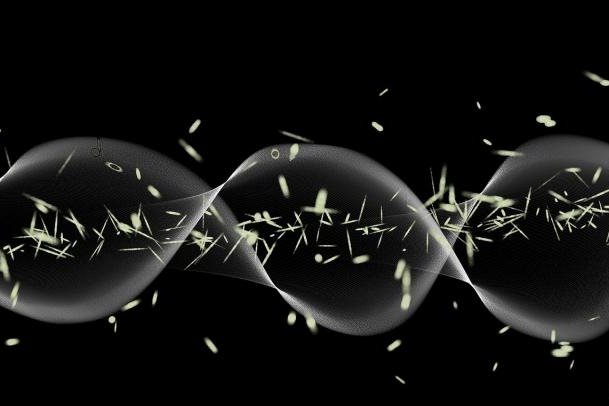Quantum information is constantly being influenced by a near-infinite number of particles. Photo courtesy of University of St. Andrews
Aug. 20 (UPI) -- Physicists have developed a more sophisticated and accurate way to simulate quantum particles and quantum systems. The breakthrough could speed up the development of quantum technologies.
Quantum physics, or quantum theory, is the study of the behavior of individual subatomic particles. The study of quantum mechanics has revealed the tremendous computation potential of qubits, or quantum bits, the smallest unit of quantum information.
Unlike classical bits, the binary backbone of classical computer technologies, which can represent either zero or one, quantum bits can represent both zero and one simultaneously in a state of superposition.
Simulations suggest quantum bits can be used to perform computation tasks at faster speeds and with greater efficiency than classical supercomputers.
But while lab experiments have shown the storage and manipulation of quantum information is possible, producing working quantum computers has proven much more difficult than simulations suggested. According to a new study, published Monday in the journal Nature Communications, that's because quantum simulations are inexact.
In reality, qubits don't behave like simple simulated qubits. They're not isolated. Quantum particles are continuously interacting with a near-infinite number of other particles. Replicating this reality via mathematics is extremely difficult.
The latest research promises to improve the ability of quantum simulations to account for the relationships between qubits and surrounding particles. By making quantum simulations more accurate and realistic, scientists hope to inspire new insights into quantum mechanics and perhaps pave the way for the next quantum computer.
"Our research has found a ground-breaking new way of keeping the most relevant fraction of information, allowing an exact description of the behavior of the qubit, even on a regular laptop," Brendon Lovett, theoretical physicist at the University of St. Andrews, said in a news release. "This work not only opens up the possibility of more faithful simulations of the next generation of quantum processors but could allow us whole new insights into how quantum mechanics works when many particles are put together."















